Lazy is a Myth
MY THOUGHTSCAREGIVERSLEARNERSHIGH SCHOOL
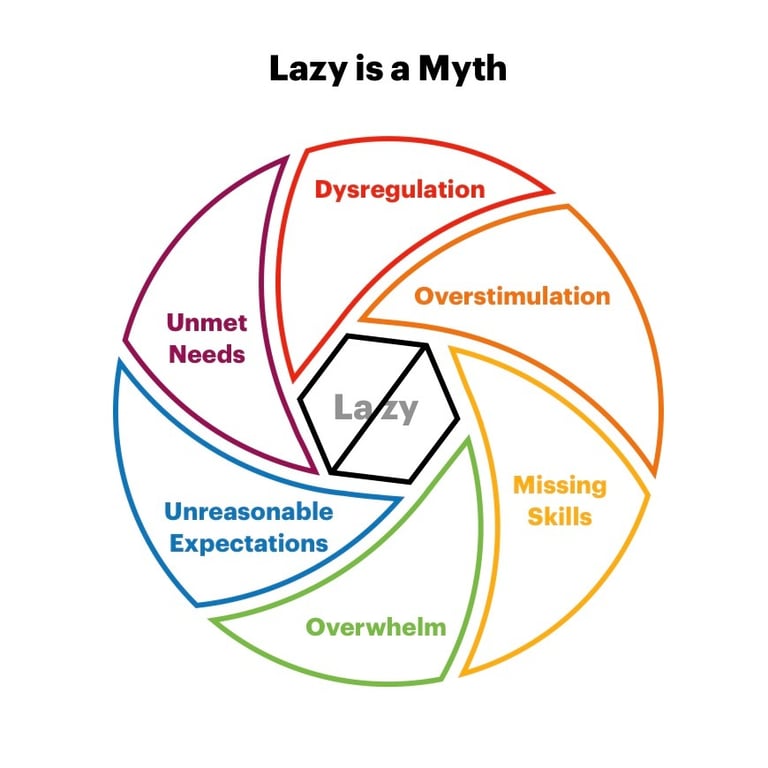

Lazy.
You’ve heard it before. From caregivers, teachers, probably even yourself.
Definitely from a society that judges worth by economic productivity, rather than benefit to one’s community.
Being labeled as lazy is not a pleasant feeling, is it?
Which begs the question, why would anyone choose to be lazy?
The answer is simple. They do not.
What we think of as lazy is usually one of the following issues:
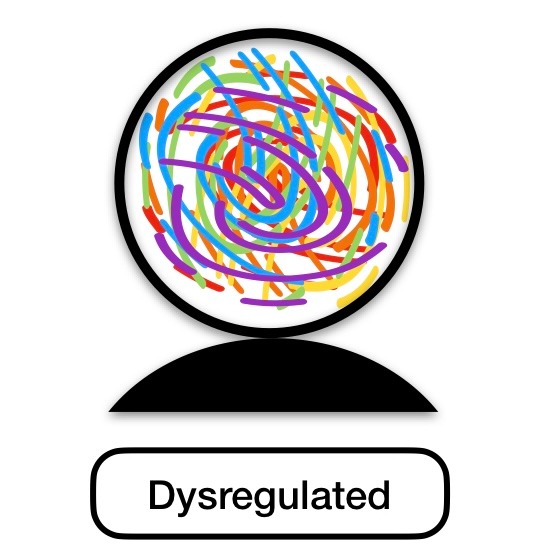

Dysregulation is an inability to control or mitigate one’s emotions, which in turn can cause impulsive or ineffective behaviors.
If you think of thoughts and emotions as vehicles traveling around, dysregulation is the system of roads. Unlike most roads, dysregulation means there are no median stripes, lane lines, signs, or traffic lights to guide the vehicles. Without those guides, traffic is chaotic. It is easy to get lost.
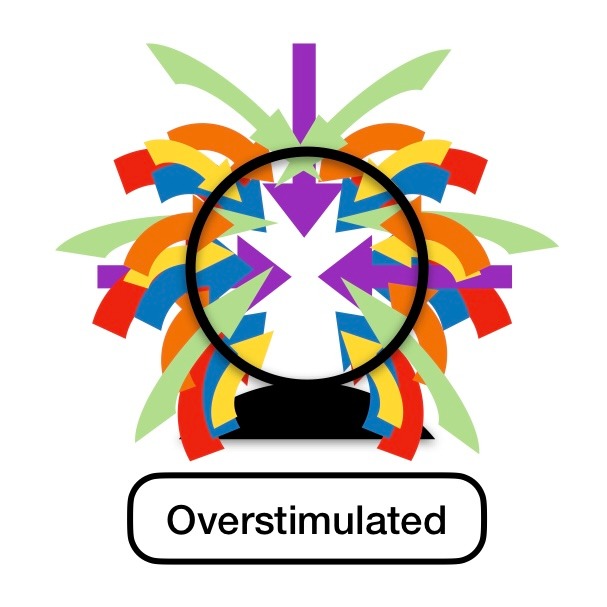

Overstimulation occurs when there is more sensory input than one can effectively process.
Our brains are being bombarded with sensory stimuli which is information about our environment, interpreted by our senses like vision or hearing
Most people will “tune out” the sensory information that isn’t relevant to them. But someone with neurodivergence or a high amount of stress may not be able to ignore the extra information. Like a song stuck in your head, the the stimuli cannot be ignored. This effect becomes cumulative with every slightly flickering light, motion, and color in their range of vision; every conversation, mechanical hum, and sound in ear shot; every crooked seam and itchy tag on their clothing all adding up to more than their overworked brain can handle. This is when melt downs occur. Some people melt down very noticeably. Some people melt down by outwardly freezing while internally feeling like a hamster on a wheel - running and running and running but never getting anywhere.
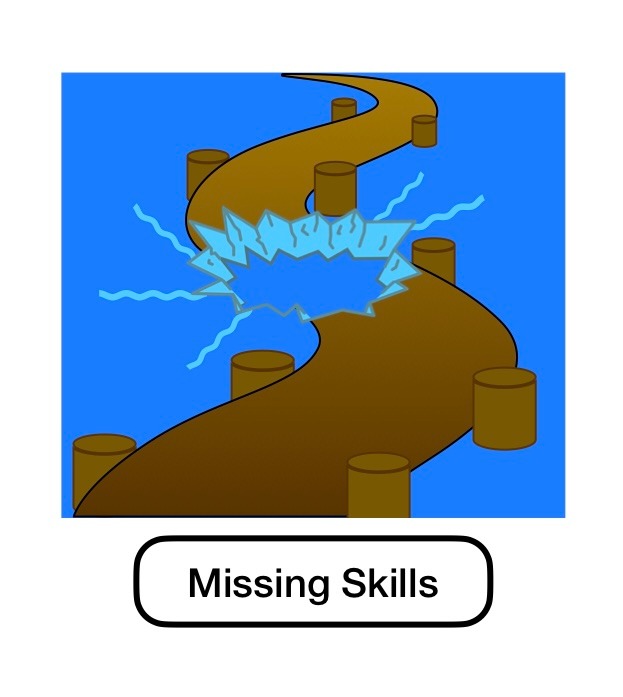

Missing Skills - one cannot do something one does not know how to do
No one knows everything. No one. However, everyone seems to have their own idea of what is “basic knowledge” and may judge others for not having the same “basic knowledge.” Being on the receiving end of this judgment can leave you feeling awkward, embarrassed or defensive.
Every time I came home from college, something in my parents’ home was different. To them, it may have been there for months and was therefore normal but to me it was a brand new change. I remember moments spent staring at the fancy shower head with no idea which handle to turn or being baffled by the streamlined oven display with none of the knobs I was used to. To my parents, I appeared to have suddenly forgotten how to shower or bake. Obviously, I didn’t forget but I could not get started if I could not get the shower or the oven to an appropriate temperature.
A lack of skills is not a moral failing. It means you have an extra step to take before starting (or finishing) a task.
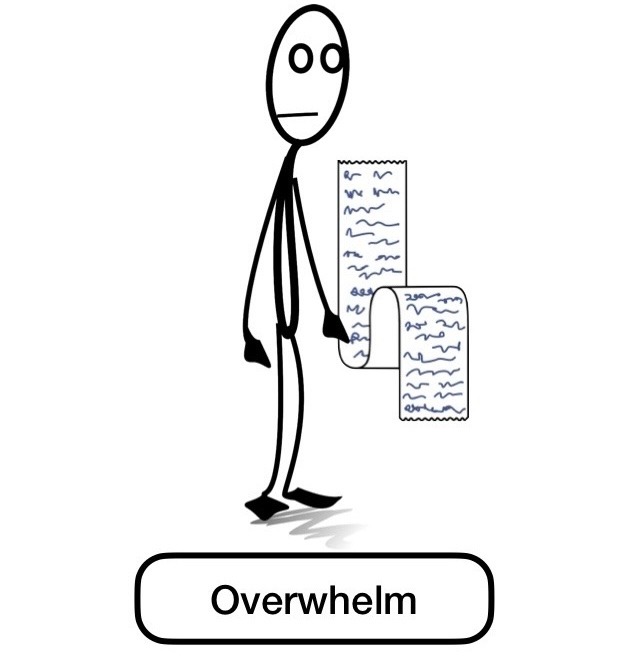

Overwhelm occurs when one has too many tasks or tasks feel too large.
There’s an old, not especially funny joke:
How do you eat an elephant?
One bite at a time.
First of all, hard pass. I’m not eating that.
Second of all, that doesn’t actually answer the question.
It doesn’t say how to get started or whether any parts are more or less important than others.
When there is too much to do, it can be tough to know how to prioritize, how to allocate time, and how to keep track of it all. This can lead to decision paralysis and inaction.
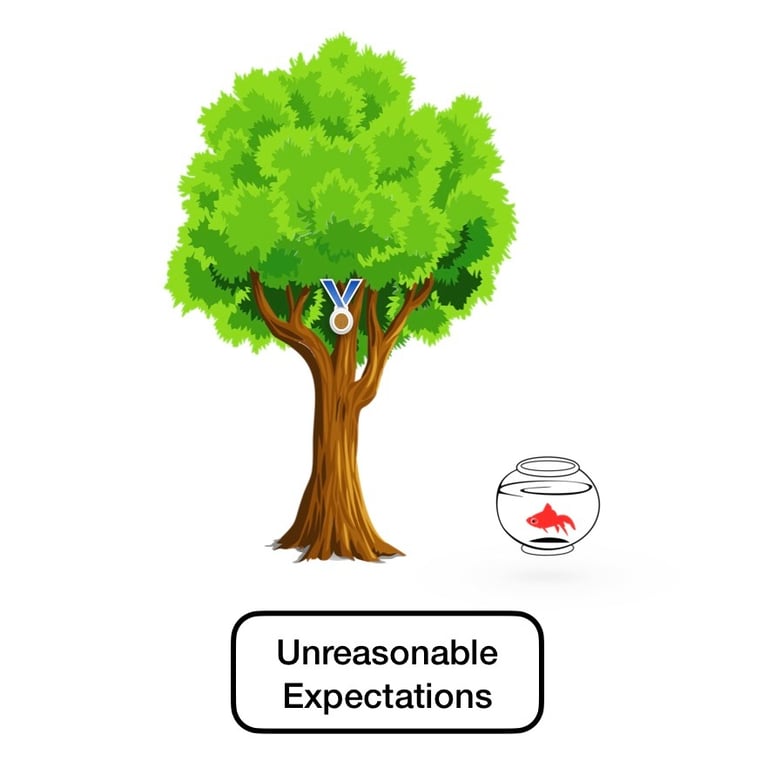

Unreasonable Expectations - “Everybody is a genius. But if you judge a fish by its ability to climb a tree, it will live its whole life believing that it is stupid.” Albert Einstein
Schools and employers can have a tendency to treat students and employees as interchangeable cogs. They do the same things at the same times and they should all have the same results, yes? Yesssss?
No.
Every student, every employee is going to have different strengths and weaknesses.
I am the shortest one in my family, by anywhere from a mere couple inches to almost a foot. I have spent almost my entire life with many things I need physically out of reach. Sure, I can go get a stool, drag it to where I need it, get up, get an item, get down, and put the stool back. Getting items is possible. Getting items as quickly as anyone else in the family is absolutely an unreasonable expectation. I have so many more steps to take to accomplish the same task. A stool is a reasonable accommodation for my height but it will never make me as efficient as my taller family members at getting high placed objects.


Unmet Needs - barriers or limitations that are not being accommodated
There are many kinds of barriers:
Personal barriers:
Physical limitations
Chronic health problems
Mental health problems
Learning disabilities
Rejection Sensitive Dysphoria*
Imposter Syndrome*
Barriers at the community or societal level:
Being ND in a world built by and for NT people
Being disabled in a world built by and for abled people
Being anything other than a cishet white man in a world built by and for cishet white men
Financial barriers
Transportation barriers
Educational barriers
In the example above, I cannot make myself taller. That doesn’t mean I have to
A somehow meet expectations that are unreasonable for me or
B continue to live in an environment that doesn’t meet my needs when change is possible
When I moved into my current home, I unpacked almost entirely on my own, by choice. Everything I use daily is within reach. I am more efficient and far less frustrated in this space compared to my last home. Bonus - everyone else can still easily reach items as well.
When you design a space with accessibility in mind, you often create environments that are more convenient for everyone.
To sum up, lazy is a myth.
You aren’t lazy. You’re tired.
Be kind to yourself*
Get some rest.
*These will be topics of future posts
